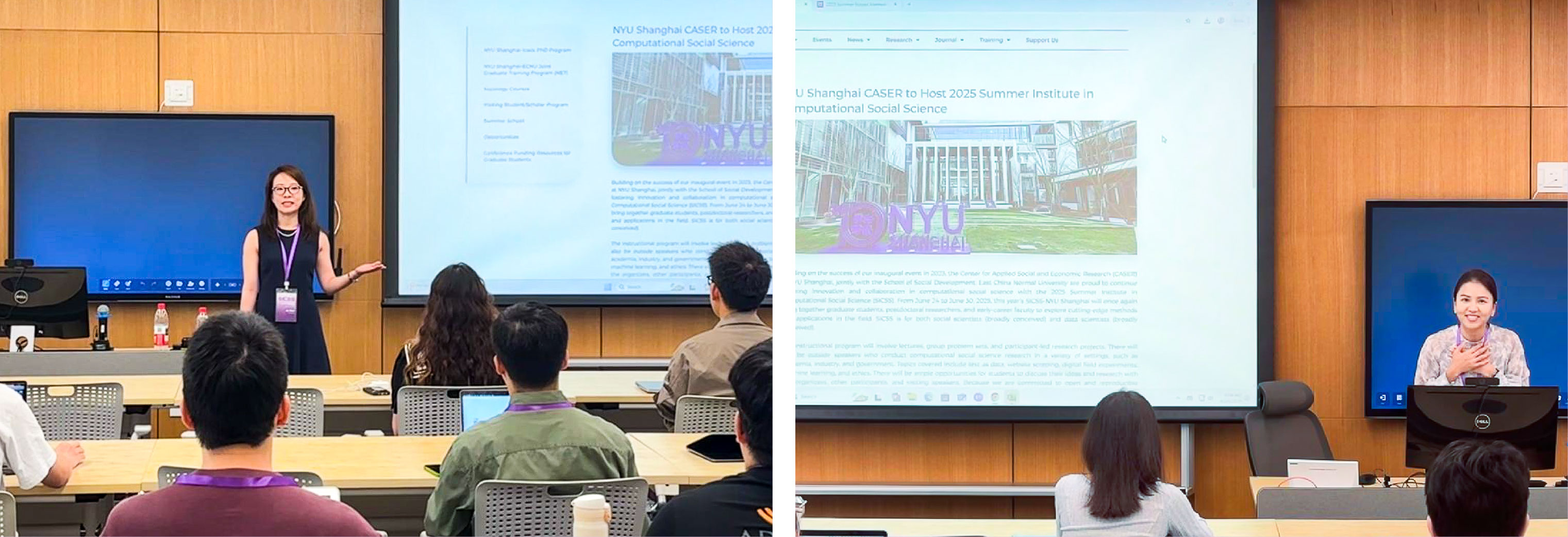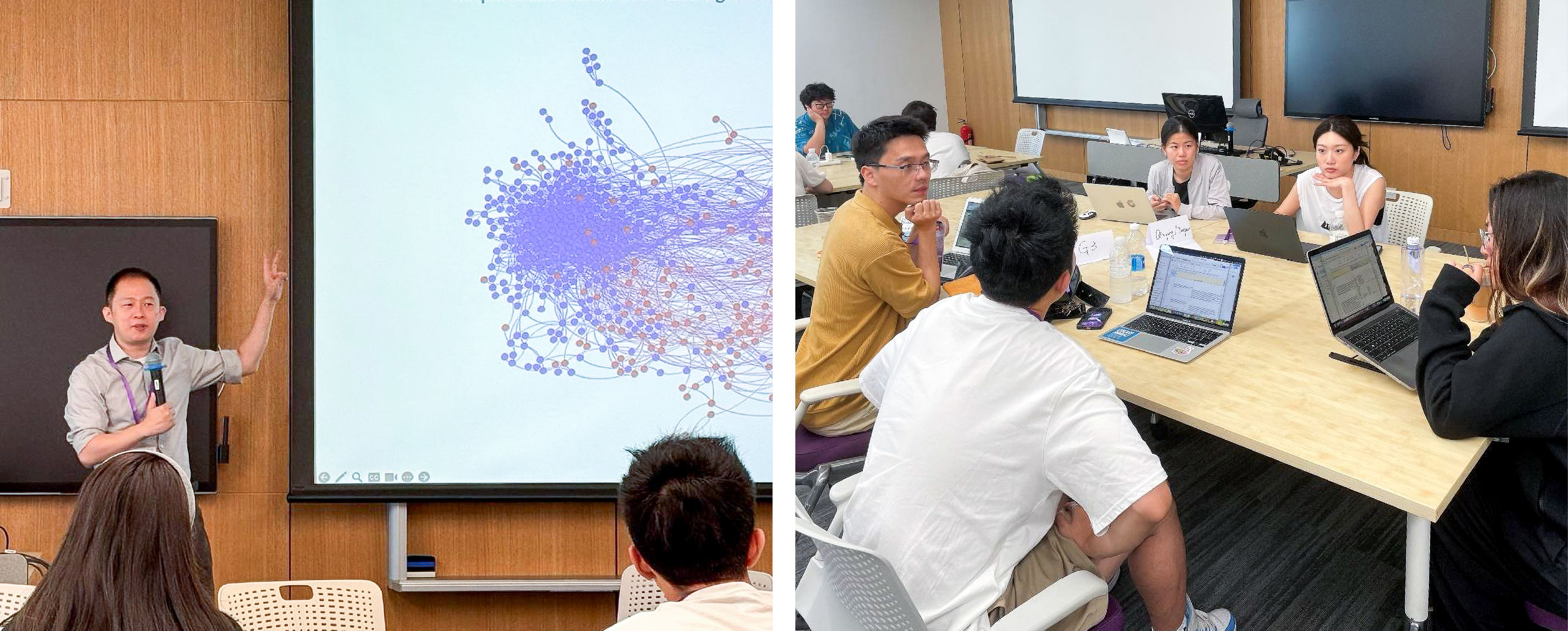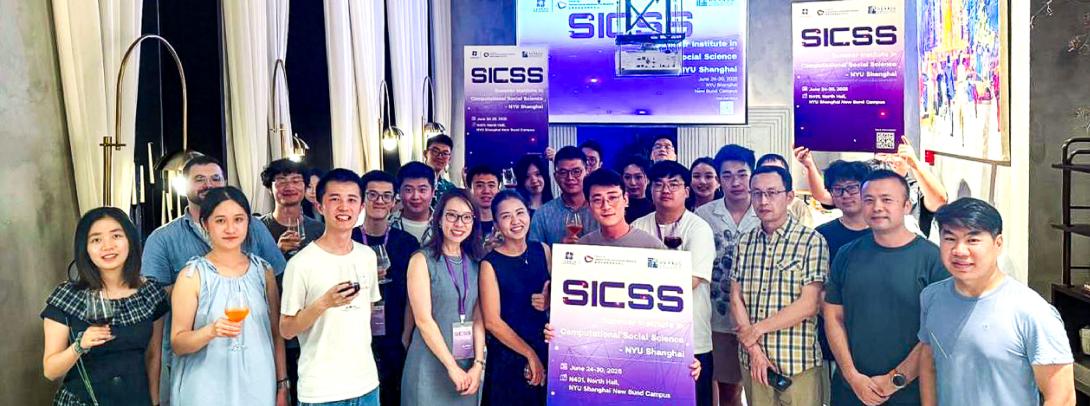Thirty-two early-career scholars, postdoctoral researchers, and graduate students attended the 2025 Summer Institute in Computational Social Science (SICSS-Shanghai) hosted by the Center for Applied Social and Economic Research (CASER) at NYU Shanghai from June 24 to 30. Representing 26 universities and spanning disciplines from sociology and political science to communication, data science and economics, participants spent six days engaging with intensive lectures, hands-on tutorials, and interactive workshops led by distinguished scholars in computational social science.
“SICSS embodies CASER’s mission to advance data-intensive, methodologically rigorous research on critical social and economic issues in China and beyond,” said NYU Shanghai Assistant Professor of Sociology Jia Miao. “The program brings together early-career researchers from diverse backgrounds to explore how computational tools can deepen our understanding of complex societal phenomena. It is a vibrant and collaborative space for learning and innovation, and we are proud to contribute to this global community.”

The opening lecture, “Can Generative AI Improve Social Science?,” was delivered by Chris Bail, co-founder of SICSS and professor of sociology, political science, and public policy at Duke University. Throughout the week, speakers from across China and the US spoke on a range of timely topics, including AI’s impact on research innovation, using large language models for text annotation, the rise in low-quality journals, computer vision in social science, and causal machine learning.

The week concluded with the Ideathon in Computational Social Science, where six interdisciplinary teams presented group projects on innovative topics in computational social science. Project themes ranged from the inclusivity of international research in academic publishing to sentiment analysis on social media platforms. A poster session followed the Ideathon, giving participants the chance to exchange feedback on research design, data strategies, and analytical approaches, and to explore opportunities for future collaboration.

The 2025 SICSS-Shanghai not only equipped participants with cutting-edge methods but also fostered a sense of scholarly community. As one participant remarked, “The program was more than a technical bootcamp—it was a space to build lasting connections across disciplines, institutions, and borders.”
SICSS is a global initiative launched in 2017 to provide rigorous training in computational methods to researchers around the world. With a mission to promote innovation, interdisciplinarity, and ethical practice in computational social science, SICSS has hosted over 2,200 participants from more than 500 universities and 150 fields. This year marked CASER’s second time organizing the SICSS program, following a successful inaugural session in 2023.


